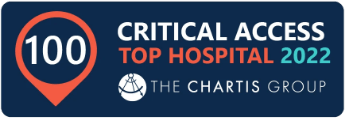Hypertension appears when the force with which blood pushes the artery walls is consistently too high. This means the heart has to work harder to pump blood, which can lead to severe health issues like heart disease. This is the reason why hypertension is also commonly known as high blood pressure.
According to the World Health Organization (WHO), about 46% of adults with high blood pressure are unaware that they have the condition. If left untreated, high blood pressure increases your susceptibility to heart attack, stroke, and other cardiovascular problems.
At Kimball Health Services, we provide personalized care, offering preventive measures, diagnostic insights, and intervention strategies. Regular blood pressure checks, lifestyle adjustments, and tailored plans are key components of our approach to managing hypertension.
The unit of measure for blood pressure readings is millimeters of mercury (mm Hg). It is usually written as two numbers.
The top number, or systolic pressure, reflects the force during heartbeats, while the bottom number, or diastolic pressure, measures the pressure between heartbeats.
A blood pressure reading that is below 120/80 mm Hg is considered ideal.
Typically, high blood pressure shows no symptoms, thus making regular checks a necessary part of your regular health assessment. Untreated high blood pressure conditions can lead to severe health complications.
Blood pressure readings with above-average values should be closely monitored, especially if you have risk factors such as a family history of high blood pressure or related conditions.
If you have very high blood pressure (usually 180/120 or higher), you may experience symptoms such as:
- Severe headaches
- Chest pain
- Dizziness
- Difficulty breathing
- Nausea and vomiting
- Blurred vision or other vision changes
- Anxiety or confusion
- Buzzing in the ears
- Nosebleeds
- Abnormal heart rhythm
Some risk factors for high blood pressure, like age, race, and family history, may be beyond your control. Conditions like obesity and chronic diseases can also elevate risks.
However, factors such as lifestyle choices, including tobacco use, excessive alcohol, lack of physical activity, and stress, all increase the risk for hypertension. These risks can be managed through heart-healthy choices in life.
The two types of hypertension are primary and secondary hypertension.
Primary hypertension develops over time with no identifiable cause. This is the most commonly occurring form of hypertension, accounting for about 90-95% of cases.
Although a specific cause for primary hypertension is often unknown, it is believed to result from a combination of genetic and environmental factors. Risk factors may include age, family history, race, and lifestyle choices.
Treatment for primary hypertension often involves lifestyle modifications and, in some cases, medication.
Secondary hypertension tends to be a result of another health problem, such as kidney disease or thyroid problems. It is less common than primary hypertension and accounts for about 5-10% of cases.
This type of hypertension appears suddenly and causes higher blood pressure than primary hypertension. Conditions such as kidney disease, hormonal disorders, certain congenital heart defects, and side effects of medications can all contribute to secondary hypertension.
Treatment for secondary hypertension usually involves addressing the underlying cause, which may include treating the primary condition or adjusting medications.
Hypertension can lead to severe complications, including:
- Aneurysms
- Heart attacks
- Strokes
- Heart failure
- Vision loss
- Kidney problems
- Metabolic syndrome
Early detection and management are crucial for a healthy heart.
Regardless of the type, hypertension requires regular monitoring and management to prevent complications and maintain heart health. Take charge of your heart health at Kimball Health Services.
As one of the top critical access hospitals in the nation, we pride ourselves on delivering high-quality, patient-centered care.
In case of an emergency, call 911 or walk into our emergency department anytime. For appointments, call ahead or fill out our online form. We're here for you whenever you need us.








